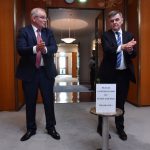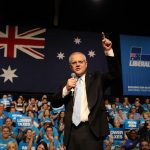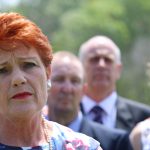The political outlook for 2014
The Government and the Opposition are preparing for the year ahead. Dominic O’Sullivan predicts that the budget is going to be a major talking point in 2014.
Balancing the budget is likely to dominate politics in 2014. Political management skills will be put to the test as economics, politics and ideology combine in pursuit of an important but profoundly difficult objective. Balancing budgets is never politically neutral, and the Government will be careful to ‘spin’ its public image in ways that mask the ‘class warfare’ that motivates much of what the Coalition has already indicated as budget balancing policy priorities. For example, reducing superannuation co-contribution payments to low income earners occurs at the same time as the Coalition proposes significant extensions to middle-class welfare with a very generous paid parental leave scheme that disproportionately benefits the better off. The remaining superannuation tax concessions also disproportionately benefit the better off.
The Education Minister Christopher Pyne’s proposal to have the Government set aside David Gonski’s equitable school funding arrangements failed not so much because of collegial objection to ‘class warfare’, but because of concerns about the public perception that might emerge from such an overt rejection of a ‘fair go’ for all.
The politics of class is emerging as a key point of differentiation in the debate over a $6 fee for visits to bulk-billing doctors. The benefit to a balanced budget is clear, but the burden of a charge for something for which people have already contributed through the Medicare levy falls disproportionately on the poor and illustrates that it is unlikely that the Government will want to construct a programme to reduce public expenditure in ways that share the cost across the community. Yet at the same time, the Government is legitimately concerned about unsustainable growth in the cost of Medicare and the health system generally.
As it prepares for 2014, the Government will also be particularly mindful of the lessons learned since the election, that a ‘grown-up government’ cannot proceed on the basis of three word slogans such as ‘stop the boats’, which served it well in Opposition, but provides no practical direction in the development of workable and saleable public policy. There is much to be done to repair relationships with Indonesia, and the Prime Minister and Foreign Minister will need to do better for this to occur in 2014, when the public may also begin to tire of the Immigration Minister’s secretive approach to the success or otherwise of his border protection policy. Voters expect to see policy working, or at the very least, reasoned explanations of failure.
Meanwhile, the ALP’s new leadership selection rules secure Bill Shorten’s position to provide space for a shift from the obsessive focus on itself that prevented the party from functioning effectively in Government. The ‘faceless men’, including Shorten himself, will have to turn their attention from power grabbing game playing to serious policy making. The required cultural shift is a significant one, as the ALP’s entrenched factional system is concerned with advancing relative power and personalities, not with advancing ideas. While Shorten did enjoy significant policy success as minister responsible for the National Disability Insurance Scheme, it will require a concerted effort for this, rather than his instrumental role in bringing down two Prime Ministers to emerge as the foundation on which he builds his leadership.
The by-election in Kevin Rudd’s seat of Griffith and the probability of a re-election of Senators in Western Australia, following the loss of ballot papers from the September 2013 election, provide early opportunities for the ALP to re-focus and present voters with an alternative vision, while Tony Abbott has already suggested that the W.A. election provides voters with an opportunity to affirm the Government’s intention to repeal the carbon and mining taxes. However, Labor will want to shift the debate to an alternative path to budget surplus than that being proposed by the Government. It is in their attitudes to budgets that political parties have the best opportunity to differentiate themselves and outline a particular philosophical vision as they set areas of spending priority alongside proposing the ways in which the burden of spending cuts ought to be distributed.

Dominic O’Sullivan is Professor of Political Science at Charles Sturt University and Adjunct Professor in the Centre for Maori Health Research at the University of Auckland University of Technology. His recent publications include ‘We Are All Here to Stay’: citizenship, sovereignty and the UN Declaration on the Rights of Indigenous Peoples and Sharing the Sovereign: Recognition, Treaties and the State.














